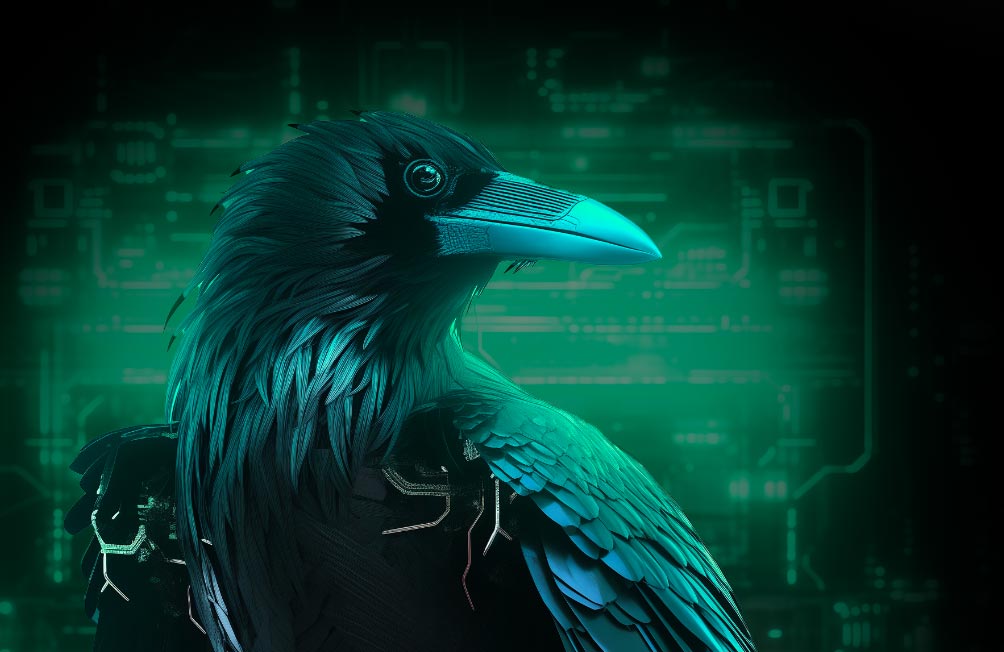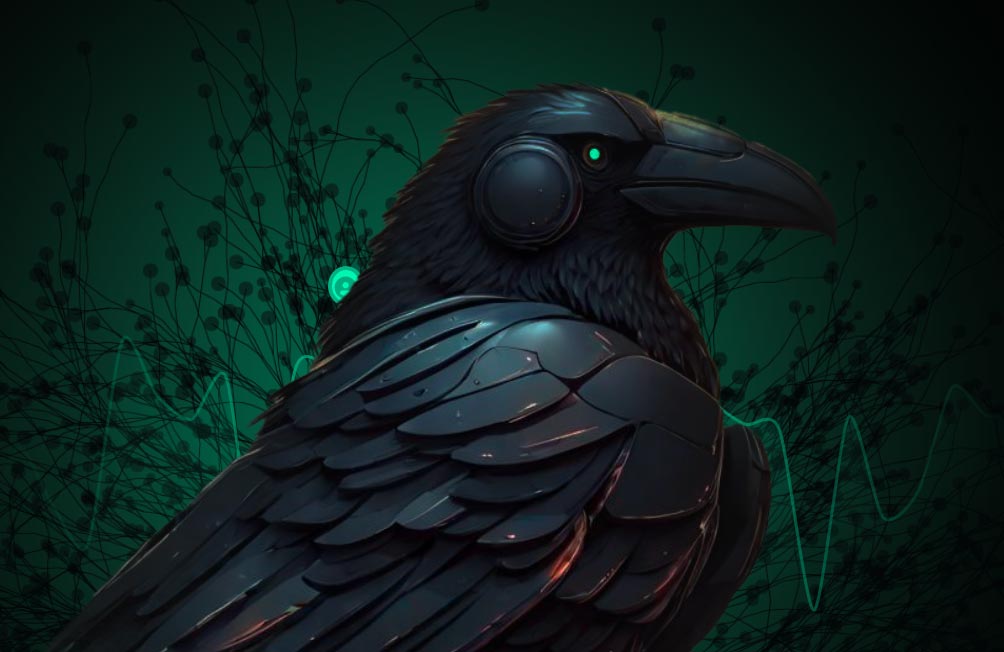March Madness 2024: Court-side seats to a tournament of misinformation and disinformation
This year's NCAA basketball tournament ignited narratives on gender dynamics, racial discrimination, and the power of social media.
Posted by Beatrice Titus, Logan Pollick, and Blackbird.AI’s RAV3N Narrative Intelligence and Research Team on April 3, 2024


As NCAA March Madness 2024 captivates audiences nationwide, the excitement on the court was matched by a flurry of narratives unfolding across social media, news media, the dark web, chat apps, and more. From celebrating record-breaking achievements to confronting deeply rooted issues of gender inequality and racial discrimination, this year’s tournament sparked impassioned narratives that extended far beyond the confines of the basketball court. Our RAV3N Narrative Intelligence and Research Team used Compass by Blackbird.AI and our Constellation Narrative Intelligence Platform to uncover key narratives that shed light on the event’s complex social dynamics. By examining these narratives, we gain valuable insights into the power of the internet to shape public perception and the importance of proactively addressing misinformation and disinformation in an increasingly connected world.
Blackbird.AI’s Constellation dashboard empowers analysts, cybersecurity professionals, and strategic decision-makers to navigate expansive information ecosystems with precision and insight. Harnessing AI-powered insights, Constellation adeptly identifies pertinent narratives within vast datasets, evaluates them for potential risks, and distills them into comprehensive reports. This synthesized information enables decision-makers to make informed judgments regarding risk mitigation strategies.
The Blackbird.AI RAV3N Narrative Intelligence and Research Team regularly updated data across March to maintain up-to-date analysis and gain insight into relevant narratives leading up to March Madness and as the tournament unfolds. This allowed the research team to identify areas of interest and discern sentiment using Constellation’s metrics. The RAV3N Narrative Intelligence and Research Team identified five narratives demonstrating the dynamic environment surrounding the 2024 March Madness tournament.
NARRATIVE 1: DISCOURSE OVER CAITLIN CLARK BREAKING THE ALL-TIME LEADING SCORER RECORD
On February 15, Caitlin Clark broke the NCAA Division I all-time leading scorer record of both men’s and women’s basketball, surpassing ‘Pistol’ Pete Maravich. Many users celebrated Clark, highlighting the importance of the milestone and commending her for her dedication and talent. These users also underscored the significance of Clark’s accomplishments for women’s sports and female athletes. Conversely, some users disagreed with Clark holding the record for men’s and women’s basketball and attempted to negate the achievement. They alleged that men’s basketball is “a different sport” than women’s basketball and suggested there should be no comparison between the two sports. Despite the pushback, the leading conversation narrative was positive, demonstrating that the news was generally received favorably.

NARRATIVE 2: RACIAL HARASSMENT OF UTAH WOMEN’S BASKETBALL TEAM
On March 21, the Utah women’s basketball team experienced racial harassment during their stay in Coeur d’Alene, Idaho, preceding their First Round March Madness game against South Dakota State. According to officials, an individual in a truck displaying a Confederate flag directed racial slurs at team members. One narrative asserted that Coeur d’Alene carries a reputation for racial prejudice, with some asserting a large presence of white supremacists, “Proud Boys,” and “Nazis” in the area. Similarly, another narrative contended that the situation could have been prevented, advocating for accountability on the individual responsible for the team’s logistical arrangements. While most narratives condemned the incident, some questioned the allegation’s authenticity. One narrative claimed that the incident was likely fabricated due to a lack of video evidence or photos of the license plate numbers of those involved. Likewise, one narrative claimed that the University of Utah has a long history of “hoax” hate crime accusations – even referring to the incident as a case similar to Jussie Smollett’s faked hate crime. One account, in particular, vocalized skepticism about the allegations and offered a cash reward to anyone who had video or photo evidence. This account also condemned the third party person who filed the complaint and allegedly one of the main financial donors to Utah’s sports programs for calling Idaho residents “anti-white” slurs.

NARRATIVE 3: NCAA’S LONG-STANDING DISREGARD OF WOMEN ATHLETES
Caitlin Clark’s achievement prompted social media users to reflect on the previous disregard of women’s athletics from the NCAA. At the same time, many voiced the importance of women not losing sight of the sport’s history. Users recollected Lynette Woodard and Pearl Moore – two women’s basketball players whose previous scoring records were never acknowledged because they played before the NCAA officially recognized women’s basketball in 1982. Woodward and Moore played in the Association for Intercollegiate Athletics for Women (AIAW). Their scoring records surmounted Clark’s, leading some narratives to argue that Clark’s accomplishment is illegitimate.
Meanwhile, some narratives advocated refraining from overshadowing these women’s achievements by constantly drawing comparisons to Pete Maravich, especially when figures like Woodward and Moore equally deserve recognition. Other narratives recalled that the women’s tournament had not been permitted to use the March Madness branding until 2022, purporting that the NCAA often dismissed women’s basketball from using the trademark because it was bad for their brand. In addition, the three-point lines in Portland during the 2024 women’s tournament elite eight were different distances, further bolstering the claims of disregard for women’s athletics. One of the coaches who discovered the error stated the incident was a shame and that many would say “only in women’s basketball.” One fast-spreading narrative called this blunder embarrassing and criticized the NCAA for the lack of oversight.
NARRATIVE 4: MIXED OPINIONS OVER THE POTENTIAL OF THE NCAA TO EXPAND THE TOURNAMENT IN THE FUTURE
Multiple sources reported ongoing narratives regarding expanding the men’s NCAA basketball tournament. The current 68-team format is under scrutiny, with proposals suggesting an increase to 80 teams. ESPN college basketball analyst Jay Williams advocated for a more substantial expansion, proposing an increase to 112 teams. These discussions sparked debates on the social web, with users expressing diverse opinions. The prevailing narrative among users is skepticism towards expansion, citing concerns that it would disproportionately benefit weaker teams. Moreover, some apprehensions about expanding the tournament would diminish the prestige associated with qualifying teams. Some narratives even argue for condensing the tournament instead of expanding it further.

NARRATIVE 5: REACTIONS TO THE TRANSFER PORTAL IN COLLEGE BASKETBALL OPENING DURING THE START OF MARCH MADNESS
The Division I Council approved new updates to the notification-of-transfer windows across all sports in Fall 2023. The new guidelines included a reduction from 60 to 45 total days allowance in the transfer portal and modified the start date that the portal opens. The portal opens seven days after championship selection for winter sports, causing the date to fall on the Monday following Selection Sunday for college basketball. The 2024 season is the first season these new guidelines were implemented, prompting negative narratives from social media. One narrative claimed the transfer portal had ruined the “greatest week of basketball,” calling the new rules ridiculous, stupid, and chaotic. Another narrative called for the council to push back the opening date until after the national championship, alleging that players and teams participating in the tournament are at an unfair advantage. In addition, one narrative questioned how team dynamics could change mid-tournament with players still in the season entering the portal and coaches making changes to team synergy.

THE PATH FORWARD
The NCAA March Madness Tournament is an extremely popular sporting event for fans worldwide. The narratives around the 2024 NCAA March Madness tournament demonstrate why organizations should devise policies and embrace tools like Blackbird.AI Constellation Narrative Intelligence Platform to protect against narrative attacks caused by misinformation and disinformation. By regularly observing narratives across the social web, organizations can quickly identify emerging harmful narratives, such as the skepticism and accusations of fabrication surrounding the alleged racial harassment of the Utah women’s basketball team. Armed with this real-time awareness, organizations can strategically respond to counter misinformation before it gains traction, whether by transparently addressing concerns, providing factual evidence, or amplifying voices that advocate for truth and equality. Furthermore, analyzing conversation drivers enables organizations to craft targeted, authentic messaging that resonates with their audience and promotes a more informed, inclusive dialogue around their brand or cause.
About Blackbird.AI
BLACKBIRD.AI protects organizations from narrative attacks created by misinformation and disinformation that cause financial and reputational harm. Powered by our AI-driven proprietary technology, including the Constellation narrative intelligence platform, RAV3N Risk LMM, Narrative Feed, and our RAV3N Narrative Intelligence and Research Team, Blackbird.AI provides a disruptive shift in how organizations can protect themselves from what the World Economic Forum called the #1 global risk in 2024.



